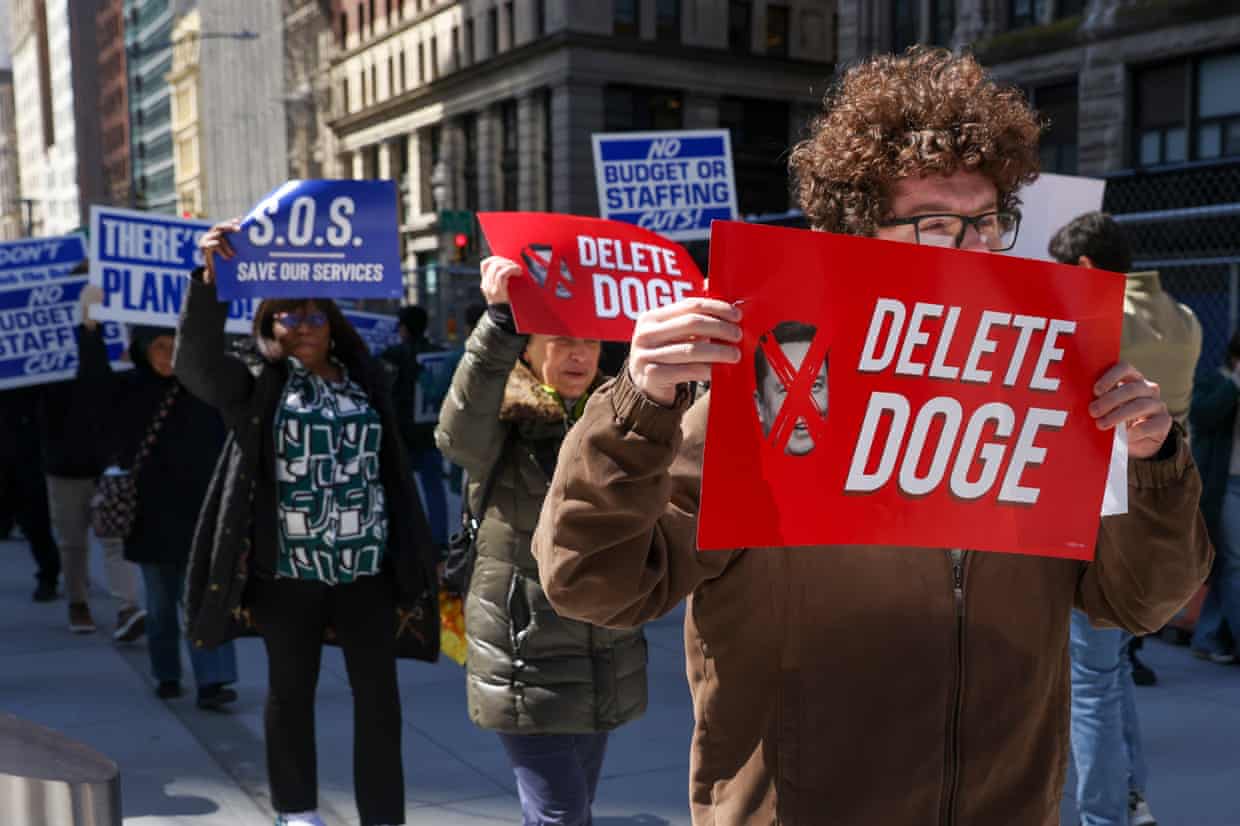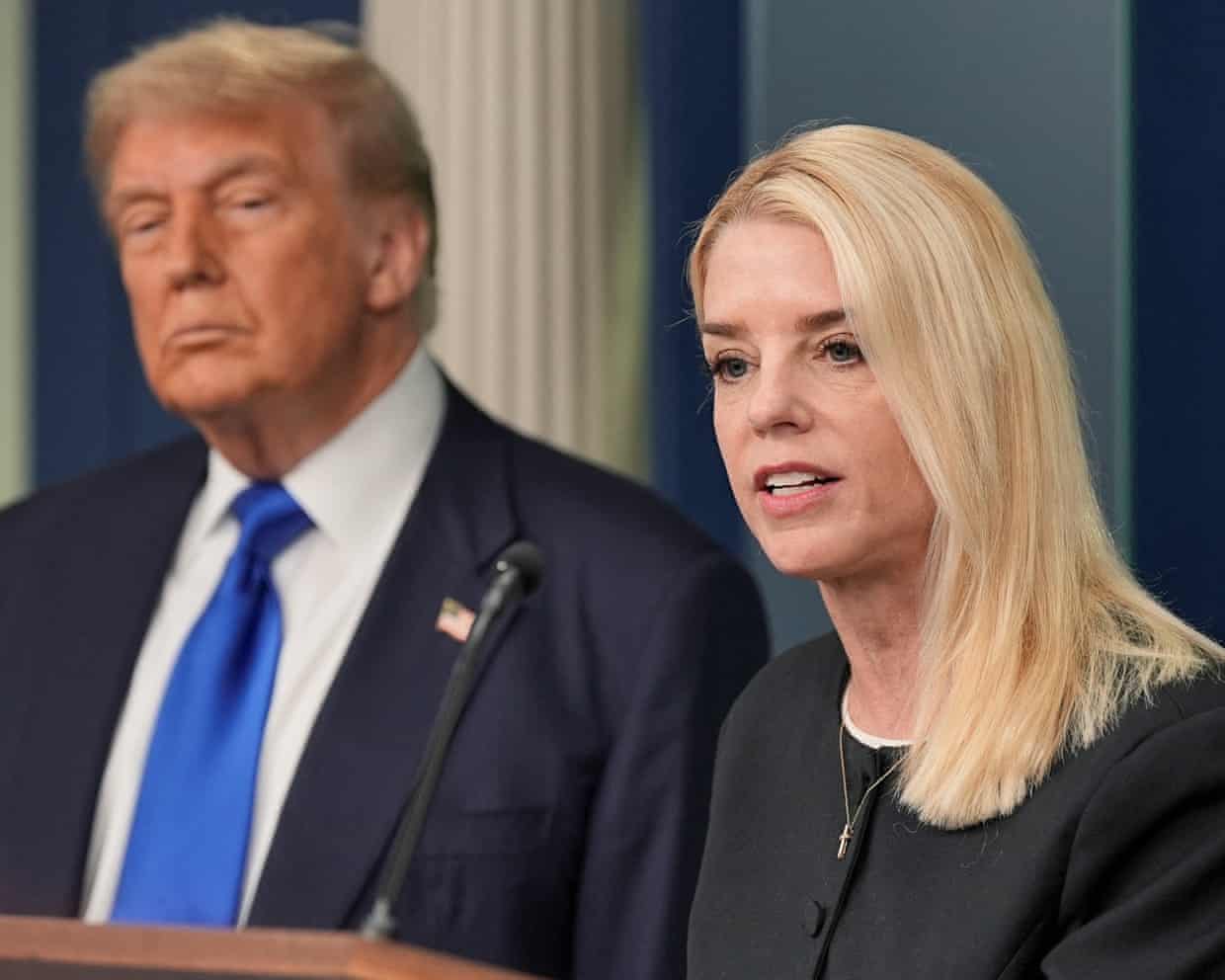
Desperate Trump Attempts To Flush 14-Year-Old Masseuse Down Toilet
Entities mentioned:
- Donald Trump: Self-preservation, Fear, Control
- Jeffrey Epstein: Power, Greed, Control
- Ashley (14-year-old masseuse): Fear, Self-preservation, Anxiety
Article Assessment:
Credibility Score: 25/100
Bias Rating: 20/100 (Extreme Left)
Sentiment Score: 15/100
Authoritarianism Risk: 35/100 (Generally Democratic)
Bias Analysis:
The article displays extreme left bias through its harsh satirical attack on President Trump. It uses hyperbole and absurd fictional scenarios to criticize and delegitimize the president, clearly aligning with anti-Trump sentiment.
Key metric: Public Trust in Government
As a social scientist, I analyze that this satirical article uses extreme absurdity to highlight and criticize alleged connections between Donald Trump and Jeffrey Epstein's sex trafficking scandal. The piece employs dark humor to emphasize the gravity of such accusations and their potential impact on public trust. While clearly fictional, it reflects real concerns about power abuse and attempts to cover up wrongdoing at the highest levels of government. The article's exaggerated scenario serves to underscore the seriousness of actual investigations and public scrutiny surrounding these issues.

US prices continued rise in July as Trump tariffs impact consumer costs
Entities mentioned:
- Donald Trump: Power, Control, Pride
- US Federal Reserve: Duty, Professional pride, Independence
- Jerome Powell: Professional pride, Duty, Independence
- Bureau of Labor Statistics: Duty, Professional pride, Integrity
- Erika McEntarfer: Duty, Professional pride
- EJ Antoni: Ambition, Influence, Professional pride
- Retailers (Walmart, Nike, Macy's): Self-preservation, Profit, Competitive spirit
Article Assessment:
Credibility Score: 75/100
Bias Rating: 45/100 (Center)
Sentiment Score: 35/100
Authoritarianism Risk: 65/100 (Authoritarian Tendencies)
Bias Analysis:
The article presents a balanced view of economic data and includes perspectives from various stakeholders. While it does highlight criticisms of Trump's policies, it also includes his statements and claims, maintaining a relatively neutral stance.
Key metric: US Economic Growth and Stability
As a social scientist, I analyze that this article highlights the complex interplay between Trump's trade policies, inflation, and economic stability. The implementation of tariffs has begun to impact consumer prices, potentially slowing economic growth. The revised job figures and inflation data suggest a more volatile economic situation than previously thought. This volatility is exacerbated by Trump's unconventional approach to economic policy and his public criticism of economic institutions like the Federal Reserve and Bureau of Labor Statistics. The president's actions, including firing the BLS commissioner and threatening to sue the Fed chair, indicate a concerning trend towards politicizing traditionally independent economic institutions. This could have long-term implications for the credibility and effectiveness of US economic policy-making and data reporting, potentially undermining investor and consumer confidence.

Trump law will cut food stamps for 2.4 million people as work rules widen
Entities mentioned:
- Donald Trump: Power, Control, Influence
- Republican lawmakers: Righteousness, Fiscal responsibility, Control
- Congressional Budget Office (CBO): Duty, Professional pride, Objectivity
- Food Research & Action Center: Justice, Moral outrage, Advocacy
- Robert F Kennedy Jr: Righteousness, Public health, Control
Article Assessment:
Credibility Score: 75/100
Bias Rating: 40/100 (Lean Left)
Sentiment Score: 30/100
Authoritarianism Risk: 45/100 (Mixed/Neutral)
Bias Analysis:
The article leans slightly left in its framing, emphasizing the negative impacts of the policy on vulnerable populations. While it includes data from the non-partisan CBO, the selection of quotes and perspectives tends to be critical of the policy changes.
Key metric: Poverty Rate
As a social scientist, I analyze that this policy change will likely increase the poverty rate in the United States. The expansion of work requirements for SNAP benefits to include parents, older adults, and veterans will result in 2.4 million fewer Americans receiving food assistance. This reduction in benefits disproportionately affects lower-income households, potentially pushing more families into food insecurity and poverty. The CBO's estimate that resources will decrease for households at the bottom of the income distribution while increasing for middle and higher-income households suggests a widening of income inequality. This policy shift may lead to increased strain on local food banks and other social services, potentially offsetting any federal savings with increased costs at the state and local levels. The long-term consequences could include negative impacts on public health, child development, and economic mobility for affected families.

Golf for them, grind for us: Trump, Vance and the hellish US holiday divide
Entities mentioned:
- Donald Trump: Power, Recognition, Self-preservation
- JD Vance: Ambition, Recognition, Influence
- Barack Obama: Legacy, Influence
- Microsoft: Competitive spirit, Influence, Greed
- Mercedes-Benz: Competitive spirit, Innovation, Greed
Article Assessment:
Credibility Score: 65/100
Bias Rating: 30/100 (Lean Left)
Sentiment Score: 25/100
Authoritarianism Risk: 20/100 (Strongly Democratic)
Bias Analysis:
The article leans left, criticizing conservative politicians and policies while advocating for more worker-friendly practices. The author's tone and selective use of examples demonstrate a clear ideological stance, though some factual information is included.
Key metric: Labor Force Participation Rate
As a social scientist, I analyze that this article highlights a growing disparity between the work-life balance of political elites and average American workers. The frequent vacations and leisure activities of politicians like Trump and Vance are contrasted with the lack of mandated paid time off for most US workers. This dichotomy may impact the Labor Force Participation Rate by contributing to worker burnout and dissatisfaction, potentially leading some to exit the workforce. The article's focus on 'infinite workdays' and technological encroachment on personal time further emphasizes the strain on the American workforce, which could discourage labor market participation and affect overall economic productivity.

‘It felt like a scene from The Handmaid’s Tale’: US comics on the dangers of political satire
Entities mentioned:
- Jena Friedman: Freedom, Justice, Professional pride
- Michelle Wolf: Professional pride, Freedom, Determination
- Sam Jay: Curiosity, Unity, Professional pride
- Donald Trump: Power, Control, Recognition
- US Immigration and Customs Enforcement: Control, Security, Duty
- Stephen Colbert: Justice, Professional pride, Freedom
- Jon Stewart: Justice, Freedom, Professional pride
Article Assessment:
Credibility Score: 75/100
Bias Rating: 35/100 (Lean Left)
Sentiment Score: 35/100
Authoritarianism Risk: 25/100 (Generally Democratic)
Bias Analysis:
The article leans left, presenting perspectives critical of the Trump administration and conservative policies. It primarily features liberal-leaning comedians and their concerns, with limited counterbalancing viewpoints.
Key metric: Freedom of Speech Index
As a social scientist, I analyze that this article highlights growing concerns about freedom of speech and political satire in the United States, particularly in the context of comedy. The experiences of comedians like Jena Friedman, Michelle Wolf, and Sam Jay reflect a perceived 'chill' in the industry regarding political comedy. Their encounters with border control, decisions to live abroad, and careful considerations about content suggest a climate of wariness and self-censorship. The cancellation of Stephen Colbert's show and Jon Stewart's comments further underscore industry-wide concerns about the suppression of critical voices. This situation potentially impacts the Freedom of Speech Index by indicating a trend towards self-censorship and institutional pressure on political commentary, which could lead to a decline in open discourse and satirical expression in the United States.

US court says Trump’s Doge team can access social security numbers and other sensitive data
Entities mentioned:
- Trump administration: Control, Power, Efficiency
- Department of Government Efficiency (Doge): Efficiency, Control, Power
- Unions: Self-preservation, Security, Privacy
- US appeals court: Duty, Justice, Obligation
- Donald Trump: Power, Control, Efficiency
- Elon Musk: Ambition, Influence, Efficiency
Article Assessment:
Credibility Score: 75/100
Bias Rating: 45/100 (Center)
Sentiment Score: 35/100
Authoritarianism Risk: 65/100 (Authoritarian Tendencies)
Bias Analysis:
The article presents a relatively balanced view, including perspectives from both sides of the issue. However, there's a slight lean towards emphasizing the concerns of the unions and potential privacy issues, which may indicate a subtle center-left bias.
Key metric: Government Efficiency and Transparency
As a social scientist, I analyze that this court decision represents a significant shift in the balance between government efficiency efforts and individual privacy concerns. The ruling allows the Trump administration's Doge team to access sensitive personal data, potentially impacting millions of Americans. This move towards centralized data access could lead to increased government efficiency, but it also raises serious privacy and security concerns. The court's decision suggests a prioritization of administrative streamlining over potential privacy risks, which could have long-term implications for how personal data is handled in government systems. The conflict between unions and the administration highlights the tension between workforce protection and government downsizing initiatives. This case also demonstrates the ongoing debate about the appropriate scope and power of unofficial government teams like Doge in accessing and utilizing sensitive information.

Trump officials move to punish lawyer who tried to block client’s deportation
Entities mentioned:
- Joshua Schroeder: Justice, Duty, Professional pride
- US Department of Justice: Control, Power, Righteousness
- Trump administration: Control, Power, Righteousness
- Donald Trump: Power, Control, Ambition
Article Assessment:
Credibility Score: 75/100
Bias Rating: 35/100 (Lean Left)
Sentiment Score: 25/100
Authoritarianism Risk: 70/100 (Authoritarian Tendencies)
Bias Analysis:
The article leans left in its framing, portraying the government's actions negatively and emphasizing potential threats to legal representation. While it includes some government perspective, the overall tone is sympathetic to Schroeder and critical of the administration's approach.
Key metric: Rule of Law Index
As a social scientist, I analyze that this case demonstrates a potential erosion of the Rule of Law Index in the United States. The Trump administration's attempt to sanction an attorney for defending his client's rights could have a chilling effect on legal representation in immigration cases. This action may discourage lawyers from vigorously defending their clients, potentially undermining due process and access to justice. The use of government power to target individual attorneys who challenge deportation orders could be seen as an attempt to consolidate executive power over the judicial system, particularly in immigration matters. This trend, if continued, could significantly impact the independence of the legal profession and the overall strength of the rule of law in the country.

DNC rips JD Vance for fishing with British foreign secretary in latest bizarre attack; Republicans hit back
Entities mentioned:
- JD Vance: Duty, Loyalty, Self-respect
- Democratic National Committee: Competitive spirit, Moral outrage, Power
- David Lammy: Professional pride, Duty, Unity
- Donald Trump: Power, Influence, Legacy
- Republican National Committee: Loyalty, Competitive spirit, Indignation
- Gavin Newsom: Ambition, Competitive spirit, Recognition
Article Assessment:
Credibility Score: 70/100
Bias Rating: 55/100 (Center)
Sentiment Score: 35/100
Authoritarianism Risk: 30/100 (Generally Democratic)
Bias Analysis:
The article presents both Democratic and Republican viewpoints, but slightly more space is given to Republican responses. The tone appears to be somewhat skeptical of the DNC's attacks, potentially indicating a slight right-leaning bias.
Key metric: Political Polarization Index
As a social scientist, I analyze that this article highlights the increasing political polarization in the United States. The DNC's aggressive criticism of Vice President Vance's personal activities during official trips, and the Republicans' defensive responses, demonstrate a heightened level of partisan tension. This exchange goes beyond policy disagreements and enters into personal attacks, which can further divide the electorate and erode public trust in political institutions. The focus on Vance's family outings and leisure activities, rather than substantive policy issues, suggests a trend towards sensationalism in political discourse. This type of rhetoric can distract from more pressing national concerns and potentially impact governance effectiveness.

EXCLUSIVE: Trump touts 'zero tax' benefits for majority of seniors on social security’s 90th anniversary
Entities mentioned:
- Donald Trump: Legacy, Influence, Recognition
- Franklin D. Roosevelt: Legacy, Justice, Unity
- Social Security Administration: Duty, Professional pride, Security
- Democrats: Moral outrage, Justice, Security
- Republicans: Competitive spirit, Loyalty, Control
- Liz Huston: Loyalty, Duty, Influence
Article Assessment:
Credibility Score: 55/100
Bias Rating: 75/100 (Lean Right)
Sentiment Score: 70/100
Authoritarianism Risk: 35/100 (Generally Democratic)
Bias Analysis:
The article heavily relies on Trump administration sources and presents their claims without significant counterbalance. It frames criticisms as 'Democrats flail and peddle lies,' indicating a clear right-leaning perspective.
Key metric: Social Security Program Effectiveness
As a social scientist, I analyze that this article presents a complex interplay between political messaging and social policy. The Trump administration is framing its actions as strengthening Social Security, emphasizing reduced wait times, technological improvements, and tax benefits for seniors. This narrative aims to counter Democratic criticisms and position Trump as a protector of the program. The focus on the 90th anniversary serves as a rhetorical device to connect current policies with the program's historical significance. However, the article primarily presents the administration's perspective, lacking a balanced presentation of opposing viewpoints or independent analysis of the claims made. The emphasis on 'zero tax' benefits and service improvements suggests a strategy to appeal to older voters, a crucial demographic in elections. The article's reliance on administration sources and lack of external expert opinions limits its comprehensive analysis of the actual impact on Social Security's long-term sustainability.

White House blasts far-left DA's warning that Trump 'better not try' DC-style takeover 'in Philly
Entities mentioned:
- White House: Control, Justice, Security
- Larry Krasner: Moral outrage, Righteousness, Justice
- Donald Trump: Power, Control, Influence
- Abigail Jackson: Loyalty, Professional pride, Duty
- George Soros: Influence, Ideology, Power
- Patrick Dugan: Justice, Ambition, Duty
- Bob Brady: Loyalty, Control, Unity
Article Assessment:
Credibility Score: 65/100
Bias Rating: 70/100 (Lean Right)
Sentiment Score: 30/100
Authoritarianism Risk: 45/100 (Mixed/Neutral)
Bias Analysis:
The article leans right, evidenced by its framing of the DA as 'far-left' and 'Soros-backed', terms often used critically by conservative media. It gives more space to White House criticism of Krasner than to Krasner's own statements, suggesting a rightward slant.
Key metric: Crime Rate
As a social scientist, I analyze that this article highlights the tension between federal and local approaches to crime management. The conflict between the White House and Philadelphia's DA represents a broader ideological divide on criminal justice reform. This impacts the crime rate metric by potentially influencing law enforcement strategies and resource allocation. The contrasting claims about Philadelphia's crime statistics underscore the politicization of crime data and its use in shaping public perception and policy. The article also touches on themes of democratic values and the balance of power between different levels of government, which could have long-term implications for crime management approaches.